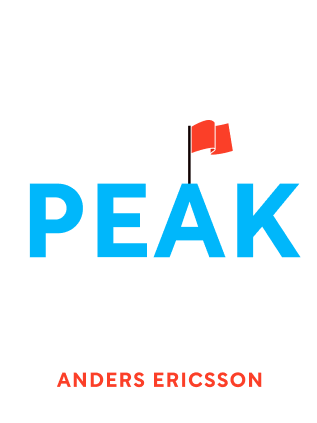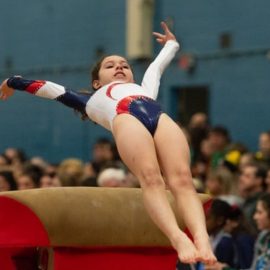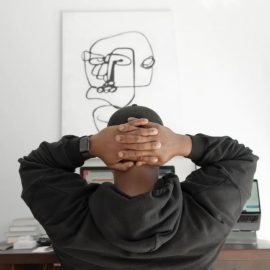

This article is an excerpt from the Shortform book guide to "Peak" by Anders Ericsson. Shortform has the world's best summaries and analyses of books you should be reading.
Like this article? Sign up for a free trial here .
Do you want to know how to master anything? Have you been dissuaded from your dream because you believe you just aren’t good enough?
If you want to know how to master anything, you first need to understand what deliberate practice is. To master a skill, you need to find a good teacher, stay focused, and remain motivated. Even Olympic athletes aren’t born to win, they spend hours-on-end practicing.
Keep reading to learn how to master any skill through deliberate practice.
How to Master Anything Through Deliberate Practice
Most of us have dreams. Some people would like to become experts in golf and make the PGA Tour. Others want to master the Japanese martial art of karate and attain black belt status. And most of us are dissuaded from pursuing those dreams because we have bought into the idea that we just aren’t good enough or don’t have the natural-born talent to perform at these levels.
But this notion is false. Through deliberate practice, you can take control of your life and learn how to master anything.
Find a Good Teacher
If you want to know how to master anything, the first step is to find a good teacher. Deliberate practice requires structure and feedback—you need someone who is well-versed in your field who can point out when you’re making mistakes and devise a practice regimen that will push and challenge you. And remember, the best teachers are not always themselves the best performers. Indeed, many experts make terrible teachers.
(We see this in sports all the time, with great players who prove to be utter flops as coaches. Wayne Gretzky, for example, is widely regarded as the greatest player ever to play in the National Hockey League. But he was a disappointment as a coach, posting a decidedly mediocre .436 win percentage over four seasons as head coach of the Phoenix Coyotes.)
When looking for your teacher, try to avoid overly subjective criteria (online ratings sites like ratemyprofessors.com, for example, are notorious for being biased in favor of teachers who are fun, personable, or physically attractive, rather than effective teachers). You should find someone who has established skills and a strong background in the field you wish to pursue, and one who will help you develop your own mental representations and focus on the specific areas in which you need the most improvement. You may also need to switch teachers at some point, especially if you notice that you have stopped improving.
If you don’t have a teacher, can’t find one, or can’t afford one, you can still learn how to master anything by applying most of the principles of deliberate practice to your routine. Try to do something that you’re currently unable to do, take yourself out of your comfort zone, and practice it again and again—not through unthinking repetition, but with a keen focus on exactly how you’re doing it and where you’re specifically coming up short. The Internet can be a great tool for finding the most effective training techniques in most disciplines.
Focus
Focus and engagement are key. Remember, if your mind is wandering elsewhere, you’re not truly engaging in deliberate practice and you’ll be unlikely to see any improvement. If you really want to know how to master anything, your practice sessions away from your teacher will be intensive, rigorously focused, and unfortunately, not always fun—you probably won’t become a chess master by playing friendly, non-competitive matches in the park; you’re not going to become a bowling pro by heading to the bowling alley with your friends once a week. Short, intense training sessions with clear goals are the most effective way to quickly develop new skills.
Olympic swimmer Natalie Coughlin attributes her success to this sort of intense focus. She used to spend hours and hours every week practicing her strokes, but would often become bored and distracted by the repetitive nature of what she was doing—because she wasn’t engaged in deliberate practice. She was just mindlessly performing the same moves over and over again, instead of developing a mental representation of what her body felt like when she performed a “perfect” stroke and honing her technique until she fulfilled that mental ideal.
This realization inspired Coughlin to alter her practice regimen. Her sessions would now be focused on building specific skills, instead of working toward a vague overall “improvement.” She began cutting the excess time from her practices and used the remaining time to rigorously focus on improving her form. As with all deliberate practice, focus and quality are far more important than repetition and quantity.
Motivation
How do you remain motivated throughout a long and intensive deliberate practice regimen? How do you avoid succumbing to the mental and physical exhaustion and just giving up? Deliberate practice is highly effective, but can be grueling—many people simply cannot maintain focus and discipline, especially when they reach temporary plateaus (which are usually a cue to intensify and up the ante with their practice regimen) or don’t see immediate performance improvement.
Is it simply that the people who maintain deliberate practice just enjoy it more? Not if you believe the results of a study of Scripps National Spelling Bee contestants. According to that study, the contestants didn’t like studying at all. What distinguished the best spellers, in fact, was their ability to stick to the task despite the unappealing nature of spelling practice. So why did they keep doing it? Because they had the motivation to do so.
Motivativation itself, of course, varies greatly from person to person. For some, it’s entirely intrinsic: they just have an intense desire to be a track runner, a violinist, a chess master. For others, it’s more grounded in immediate or material goals, i.e., they want to improve their public speaking skills so they can advance in their career and earn more money.
Sometimes, seeing the improvement itself can be a powerful motivator—you see that you’re getting better and want to push yourself harder to improve even more. This convinces you that you can succeed, which inspires you to keep going.
The evidence argues against what many people believe—that there is an ingrained or natural quality of “grit” or “stick-to-itiveness.” People who are experts are usually experts in one particular field: they were motivated to practice and excel in one pursuit that interested or motivated them, not in all endeavors. Chess masters who apply rigorous deliberate practice to reach the pinnacle of performance in their field don’t usually apply that same discipline to other things, like swimming or karate. This situational dependence renders the idea of a generic “willpower” trait highly dubious.
Moreover, belief in such a trait leads to a self-fulfilling prophecy: your unwillingness to practice leads you to conclude that you lack the necessary willpower, which causes you to further avoid practice, which means you don’t improve. It leads to defeatism and an unwillingness to try.

———End of Preview———
Like what you just read? Read the rest of the world's best book summary and analysis of Anders Ericsson's "Peak" at Shortform .
Here's what you'll find in our full Peak summary :
- How to become an expert in any field you choose
- Why practice isn't enough because you need to change how you practice
- Why natural talent isn't enough and practice is more important






